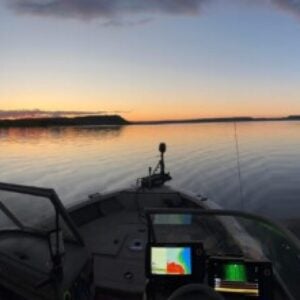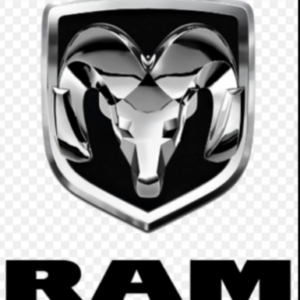I’ll be putting close to 2000 miles on my boat trailer next week. It’s a 2018 with surge brakes and bearing buddy’s. I have added a few pumps of grease a year to keep the spring 80 per cent compressed. The inner seals aren’t leaking and the wheels spin OK without any noise and no movement when checking for looseness. Would you guys go for it as is? Probably have less than four thousand miles on these bearings.
IDO » Forums » Fishing Forums » General Discussion Forum » How long are bearings good with bearing buddy’s?
How long are bearings good with bearing buddy’s?
-
 LabDaddy1
Posts: 3047July 7, 2024 at 12:45 pm #2280165
LabDaddy1
Posts: 3047July 7, 2024 at 12:45 pm #2280165I’ll be putting close to 2000 miles on my boat trailer next week. It’s a 2018 with surge brakes and bearing buddy’s. I have added a few pumps of grease a year to keep the spring 80 per cent compressed. The inner seals aren’t leaking and the wheels spin OK without any noise and no movement when checking for looseness. Would you guys go for it as is? Probably have less than four thousand miles on these bearings.
Wait, you only add grease every year? I was under the impression you need to fully clean out and re-pack them every year or so, depending on usage?
 isu22andy
Posts: 2141July 7, 2024 at 1:10 pm #2280169
isu22andy
Posts: 2141July 7, 2024 at 1:10 pm #2280169I’d Run em . As long as the rear seals okay you should be fine with that light of use . I hardly ever add grease to a bearing buddy . Many utility trailers and enclosed trailers running 1000s of miles with no grease added. A sealed system shouldn’t need grease added if I’m thinking correctly .
July 7, 2024 at 1:59 pm #2280174Industry standard is ten to twelve thousand miles for trailer bearings.
Bad seals, leaking grease, noise, excessive heat in the hubs are all indicators that the hubs need rebuilt.
July 7, 2024 at 5:05 pm #2280191Bearings are cheap insurance for a trip that long. I wouldn’t even think of going that far and not changing them.
July 7, 2024 at 5:12 pm #2280192I would get them checked,cleaned,and repacked with new grease if they don’t need replacing.
I would’nt even consider a 2000 mile trip if they were’nt done. B-man
Posts: 6790July 7, 2024 at 5:37 pm #2280194
B-man
Posts: 6790July 7, 2024 at 5:37 pm #2280194Do what you’d like, but if you’ve done what you’ve said in the past and there’s no visible leaks I’d much rather keep running them instead of worrying about breaking news bearings in.
A little too tight or a little too loose with new bearings is asking for trouble on a long road trip. Ideally you jack up your trailer up after a thousand or so miles on new ones and check for play/tighten the castle nut if needed.
Personally I’d just run them and check for excessive heat when fueling (I do this all of the time).
I don’t know how many miles my boat trailer bearings have since I’ve repacked them, but I would say 15,000 miles would be a conservative guess, and likey have well more than 30,000 miles on the bearings.
For your own comfort you could pick up a new hub, grease, gloves, rags and tools. If for some weird reason a hub is excessively hot you could swap one out anytime.
July 7, 2024 at 5:58 pm #2280197Don’t fix things that aren’t broken. Have spares with you but it sounds like your bearings are just fine.
July 7, 2024 at 6:32 pm #2280198Had a 2003 Heritage trailer with bearing buddys. Manual said they never needed repacking. Owned the boat for 17 years and repacked once. Only reason I did it then was because I had to replace the brake calipers/rotors. As long as they have a good seal, positive pressure and aren’t hot after use, I would not worry about it.
July 7, 2024 at 6:42 pm #2280199Do what you will but i have done enough of them that were $hit that i would do it.I look at as cheap insurance so your not sitting along the road.Good luck and have fun.
 jwellsy
Posts: 1760July 7, 2024 at 6:56 pm #2280200
jwellsy
Posts: 1760July 7, 2024 at 6:56 pm #2280200I agree with Matt, just take spare parts with you. I’ll add to make sure you have the tools, rags, grease and spare kotter pins.
July 7, 2024 at 8:40 pm #2280205I’ve got bearings that haven’t been opened in 20+ years. As long as they sound good and spin freely I give them a pump or two every trip, and at every stop like gas, potty, food, etc I put my hand on the hub and check the temp. Yes new ones are “cheap insurance” but IMO new ones are getting made cheaper and cheaper every day and likely in China. I’d rather have old higher quality bearings than new ones so long as they are holding up. Very rarely does a bearing suddenly go out, they typically give warning signs, heat, noise, extra movement, etc. And the more you mess with bearings, the more they have a chance of getting damaged.
July 7, 2024 at 8:42 pm #2280206You can even buy a couple pre greased hubs and just slap them on in 15 mins if the old ones fail.
July 7, 2024 at 9:15 pm #2280207You can even buy a couple pre greased hubs and just slap them on in 15 mins if the old ones fail.
Takes longer than 15 minutes on a trailer with disc brakes!!
July 7, 2024 at 9:26 pm #2280208Takes longer than 15 minutes on a trailer with disc brakes!!
I missed that part. Never had a trailer with brakes!
July 8, 2024 at 12:27 am #2280209Yeah, I know northern tool carries new hubs complete with bearings. Might be a good idea to pick one up for a long trip. I’ve had boats for the last 28 years and have had two bearing failures. They are a pain to deal with, but things happen.
 smallie83
Posts: 157July 8, 2024 at 5:46 am #2280211
smallie83
Posts: 157July 8, 2024 at 5:46 am #2280211Run utility trailers at work and put over 10,000 miles a year on a few of them. We have one go out every few years on the sealed ones so we starting switching to bearing buddies like we all have on our boats. I’ve never had an issue with a trailer with bearing buddies. Had my last boat for 12 years and just regularly greased it, never replaced.
July 8, 2024 at 9:32 am #2280234I missed that part. Never had a trailer with brakes!
Drum brakes are quick. Disc brakes take longer because you need to take the brake caliper off to get the hub/disc off. Kind of a pain in the a$$. I had to buy some new tools to make the job quicker and easier.
July 10, 2024 at 10:40 am #2280520Have Bearing Buddies on my 2000 Shorelander trailer have repacked them once in 24 years due to a seal starting to leak, same bearings and still going. Do the same as mentioned above stop for fuel check hubs for heat Most people have issues with Bearing Buddies because they pump too much grease in them blowing out the back seal.
July 10, 2024 at 10:59 am #2280524Kind of a pain in the a$$. I had to buy some new tools to make the job quicker and easier.
I would be interesting in knowing your tools/process. I agree, they make it more difficult. Last fall, I somehow damaged a fitting in the process and developed a brake fluid leak.

 isu22andy
Posts: 2141July 10, 2024 at 12:17 pm #2280545
isu22andy
Posts: 2141July 10, 2024 at 12:17 pm #2280545Have Bearing Buddies on my 2000 Shorelander trailer have repacked them once in 24 years due to a seal starting to leak, same bearings and still going. Do the same as mentioned above stop for fuel check hubs for heat Most people have issues with Bearing Buddies because they pump too much grease in them blowing out the back seal.
Impressive – how many miles do they see a year ?
July 10, 2024 at 5:15 pm #2280603I will take pictures of the tools I bought and post later tonight.
July 10, 2024 at 9:35 pm #2280616The tools I bought from left to right:
3/8” hex wrench
3/8” drive socket with 3/8” ball end hex head short shaft
3/8” drive socket with 3/8” ball end hex head long shaft
3/8” drive 6” wobble extender (allows up to 15 degrees pivot)
plastic tubing approximately the diameter of the caliper bolt
This is for a Shoreland’r trailer with disc brakes. The disc brake caliper bolts are a 3/8” hex fitting. The difficult part about removing them is that the u-bolts holding the spring onto the axle prevent straight access to the caliper bolts.
I remove the brake line holder attached to the axle to allow more play in the brake line. I use the hex wrench to break the bolts free and back them out a little. Tediuos since you can only turn them a little at a time since stuff is in the way. Then I take the 3/8” drive socket with 3/8” ball end hex head short shaft on the 6” wobble extender to back it out the rest of the way. The wobble extender along with the ball end hex head allow the socket wrench to be off center quite a bit and still keep the hex head in the bolt. I may use the 3/8” drive socket with 3/8” ball end hex head long shaft at times also.
Take the bottom caliper bolt out first. If you take the top one out first the caliper will swing down when taking the bottom bolt out. I have a short stool that I lay the caliper on while I’m doing the rest of the bearing work.
For reinstalling the brake caliper I put the plastic tubing in the top hole to hold the caliper somewhat in place while putting in the lower bolt. I put blue thread locker on the bolts. After getting the lower bolt in most of the way I’ll put the upper bolt in and then tighten both bolts down. Sometimes it takes a while to get the lower bolt started since it needs to be lined up just right. If I got a piece of tubing or maybe a wooden dowel that would barely fit in the hole (less play), it may line up easier.
Two other things I learned about trailer disc brakes:
They cannot tolerate the amount of bearing play that drum brakes can. I threw two bearing buddies before I learned about this. Timken says to preload the bearings at 25 ft lbs, then back off only 1/6 to 1/4 turn before putting in the cotter pin.
The hubs will run hotter than drum brakes. After trailering in heavy traffic in 90 degree temps I couldn’t hold onto the hub for more than a few seconds. I called Dexter who makes the brake components on my Shoreland’r trailer and the lady said the trailer hub can run almost as hot as the front disc brakes on the tow vehicle. I bought an infrared temp gun to check. Although the hubs are warm to hot, they are always less than the front discs on my truck.The disc brakes are a little more work when repacking/replacing bearings but I think they work much better than drum brakes.
I hope this helps. Post any questions you have.July 11, 2024 at 9:49 am #2280658Here’s the Timken video that talks about trailer bearing maintenance. The preload segment starts at 4:30.
July 12, 2024 at 11:26 am #2280768Impressive – how many miles do they see a year ?
[/quote]Any where from 8,000-14,000 miles a year since the closest water is 100 miles round trip and at least one to two trips a year to Truman Reservoir.
 CaptainMusky
Posts: 25422July 12, 2024 at 1:47 pm #2280781
CaptainMusky
Posts: 25422July 12, 2024 at 1:47 pm #2280781I know I am going to jinx myself here, but in all my years of boat ownership I have never packed or replaced the bearings and all have had bearing buddies on them. I always check the hubs to make sure they are not hot. The last many years it hasnt been trailered much but there were several years where it was used a lot.
July 12, 2024 at 2:39 pm #2280783I know I am going to jinx myself here, but in all my years of boat ownership I have never packed or replaced the bearings and all have had bearing buddies on them. I always check the hubs to make sure they are not hot. The last many years it hasnt been trailered much but there were several years where it was used a lot.
Yeah that scares me Capt. I usually do mine every other. The worry with out boats is if water gets in there from launching and loading.
 CaptainMusky
Posts: 25422July 12, 2024 at 3:25 pm #2280786
CaptainMusky
Posts: 25422July 12, 2024 at 3:25 pm #2280786John the thought has crossed my mind trust me. I will just add some grease again and see how they look but never had a concern or funny looking grease.
 isu22andy
Posts: 2141July 12, 2024 at 7:07 pm #2280800
isu22andy
Posts: 2141July 12, 2024 at 7:07 pm #2280800In theory – a seals a seal . If there isn’t water and or grease coming out of them . It’s sealed . Should be fine . Shouldn’t even have to add grease in theory correct ? I’ve never understood that . Where’s it go if everyone’s adding a few pumps a year if the rear seals there .
You must be logged in to reply to this topic.
